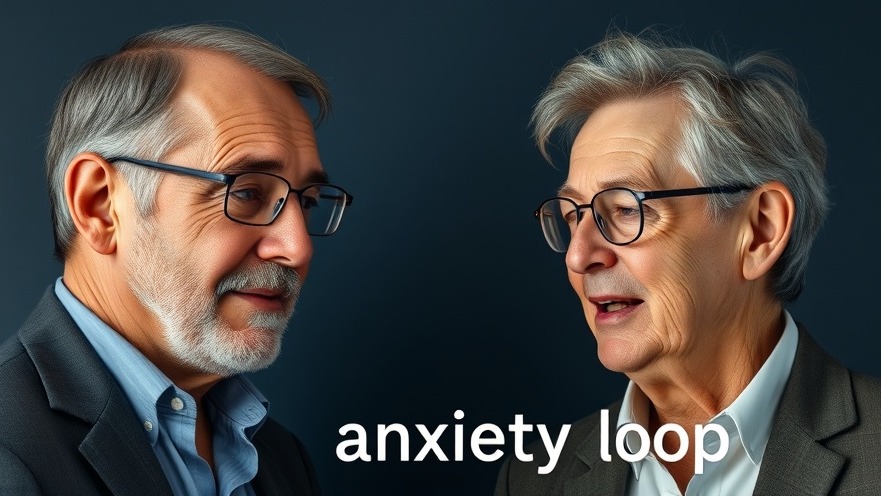
Breaking Free from the Anxiety Loop
Many of us are familiar with the tight grip of anxiety and the incessant worries that plague our minds. In a modern world filled with responsibilities and uncertainties, it's easy to find ourselves trapped in what Dr. Josh Spitalnick describes as the "anxiety loop." This term captures the cyclical nature of worrying, where anxious thoughts provoke further anxiety, leading to more worrying. Understanding this cycle is the first step toward breaking it and cultivating a healthier mindset.
In 'Worry vs. Worrying: The Anxiety Loop,' Dr. Josh Spitalnick discusses the intricacies of anxiety management, prompting us to delve deeper into effective strategies to combat this pervasive issue.
Understanding the Difference: Worry vs. Worrying
Worry can be viewed as a mental process—we evaluate potential threats and consider ways to mitigate them. Contrast this with worrying, which often spirals into an obsessive loop of negative thoughts and outcomes. This distinction is vital, as it allows individuals to recognize when their thoughts are helping them strategize versus when they’re deteriorating their mental health.
Recognizing Triggers: The First Step Towards Relief
Identifying what sparks your anxiety can be pivotal in breaking the cycle. Is it work stress? Family conflicts? Financial troubles? Recognizing these triggers can empower you to manage your responses more effectively. Start by keeping a wellness journal where you document instances of anxiety, noting both your triggers and how you reacted to them. This practice sheds light on patterns and areas for improvement.
Practical Strategies for Stress Relief
While breaking free from the anxiety loop may seem daunting, several strategies can mitigate its impact. Techniques such as mindfulness meditation, controlled breathing, and grounding exercises have been proven effective in calming anxious minds. Additionally, engaging in regular physical activity not only boosts mood but also enhances overall wellness. Simple practices like a daily fitness plan or walking can greatly improve your mental clarity and emotional resilience.
Nourishing the Mind and Body Connection
Your physical health directly influences your mental well-being. Incorporating healthy lifestyle habits such as a balanced diet rich in immune-boosting foods and brain-healthy nutrients can provide significant benefits. Foods rich in antioxidants, omega-3 fatty acids, and probiotics have been shown to lessen anxiety symptoms. Likewise, embracing herbal remedies like chamomile and ashwagandha can offer natural anxiety relief, integrating seamlessly with your wellness routine.
The Role of Support Systems in Mental Health
No one should navigate the challenges of anxiety alone. Connecting with friends or family can provide emotional support and alleviation from anxiety. Engaging in group activities or therapy can foster a sense of belonging and encouragement. Remember, exploring mental health support options is not a sign of weakness, but rather an intelligent step towards holistic wellness.
Looking Ahead: Future Predictions for Mental Health Awareness
As we navigate through the evolving landscape of mental health, the conversation surrounding anxiety and its management is likely to become more nuanced and understanding. With growing acceptance and resources available, individuals will be empowered to adopt stress relief strategies that resonate with them personally. This shift towards personal wellness will emphasize the importance of prioritizing mental health alongside physical health.
The Importance of a Balanced Routine
Finally, establishing a daily wellness routine that encompasses both self-care practices and stress management techniques is crucial. Set timers for breaks, engage in enjoyable activities, prioritize hydration, and maintain balanced meals. Incorporating these elements into your daily life supports not only your mental health but enhances your overall well-being.
In summary, understanding the dynamics of worry and its potential to spiral into continuous anxiety is essential for your mental wellness. By integrating simple strategies and seeking support, it's possible to break the anxiety loop and promote a balanced life. If you find yourself struggling, remember to reach out to those around you—you're not alone in this journey towards peace.
 Add Element
Add Element  Add Row
Add Row 




Write A Comment